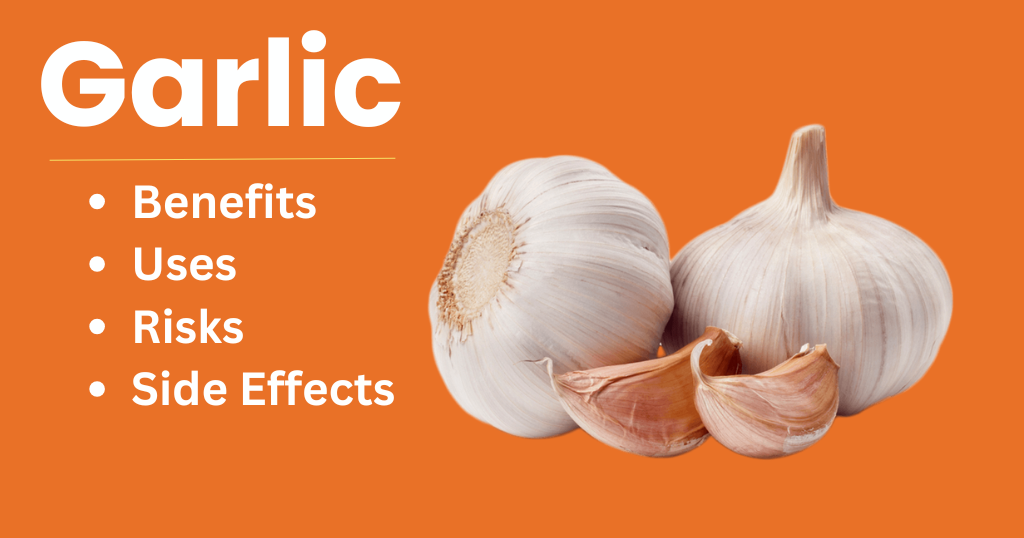Garlic is a strong herb with a great number of health benefits. It has been used in cooking and medicines for centuries. Allicin is a compound, of which it is tinctured in a strong smell and having its medicinal usefulness, that it has. Garlic is an anti-microbial and an anti-inflammatory with antioxidant properties. In certain instances, it is also able to prevent heart disease, control blood sugar, and boost immunity. However, over indulgence can cause side effects too that might be unpleasant. To be sure, it is vital to know the correct dosage and risks associated with its use, which is being discussed below.
(Top 5 Dosage of Garlic)
Raw Garlic
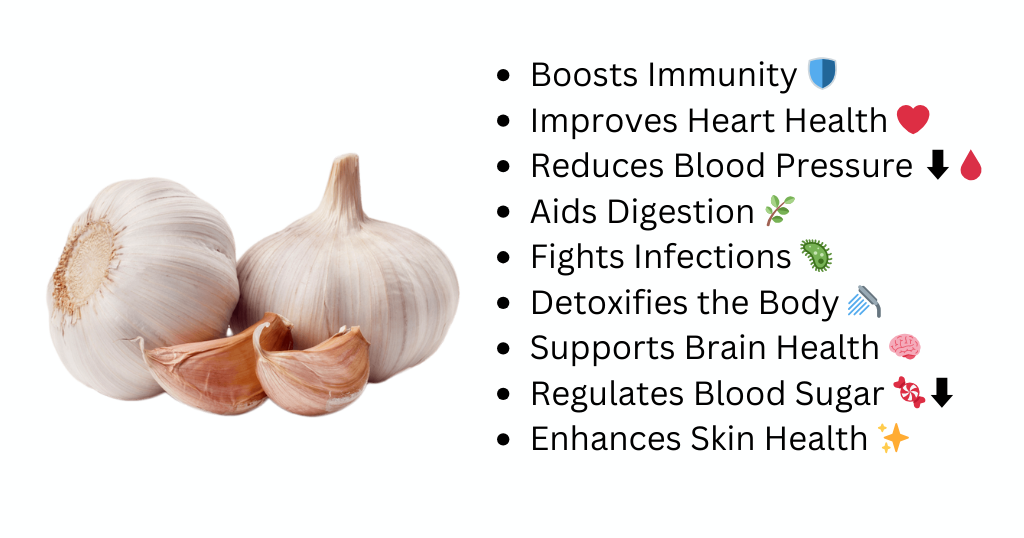
The highest medicinal value is possessed by a raw garlic. Ingesting about 1-2 cloves each day is typically beneficial without being problematic. However, excessive consumption of this may aggravate digestion. Crush or chop the garlic, and leave it for a minute to mellow the strong taste.
Garlic Supplements
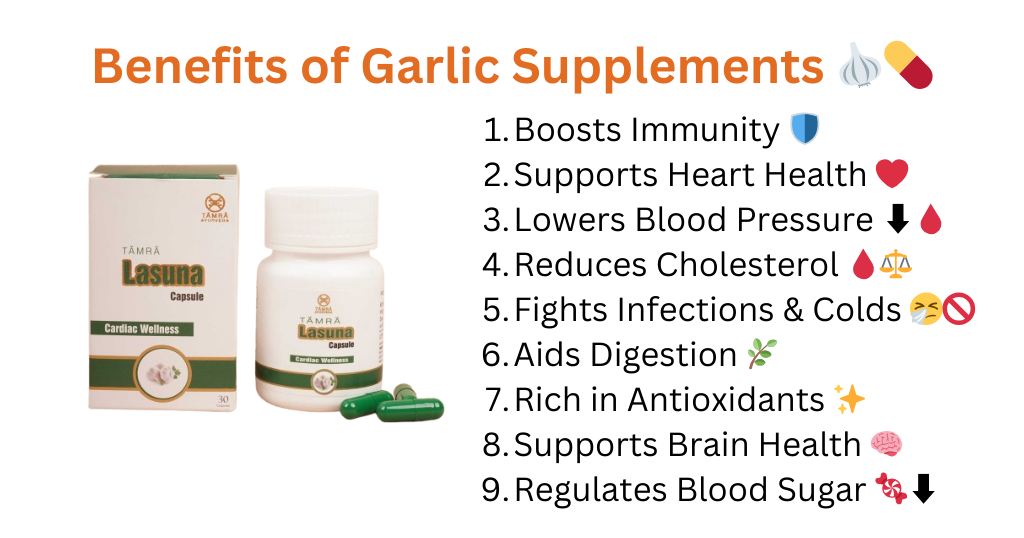
The garlic supplements are tablets, capsules, and powders. The usual daily dose is 600 to 1200 mg. However, allicin should always be checked on the label for content.
Boosts the immune system
Aged Garlic Extract
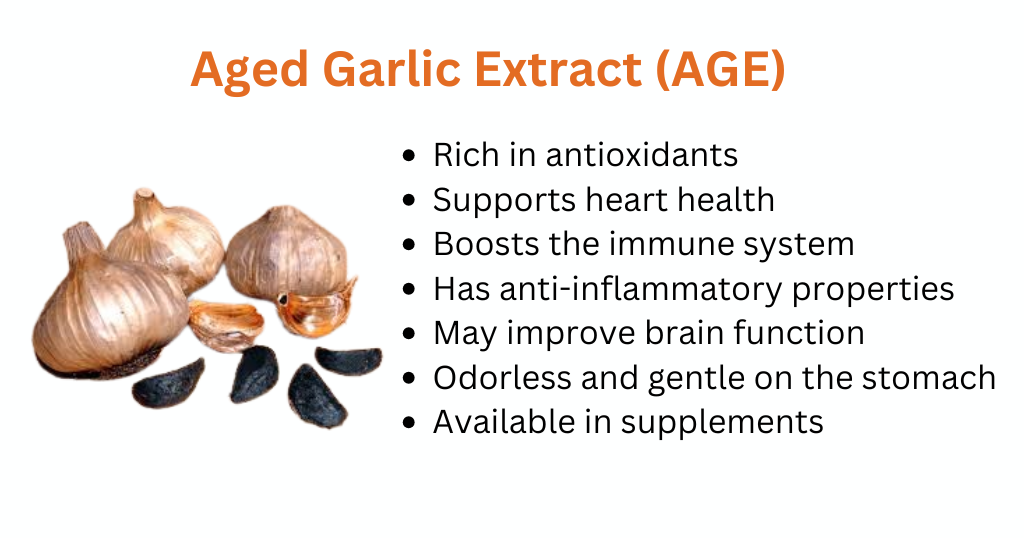
Aged garlic extract has high antioxidant properties. There are studies that indicate that one should take 2400 mg daily for a healthy heart. This form is most unlikely to cause stomach irritation.
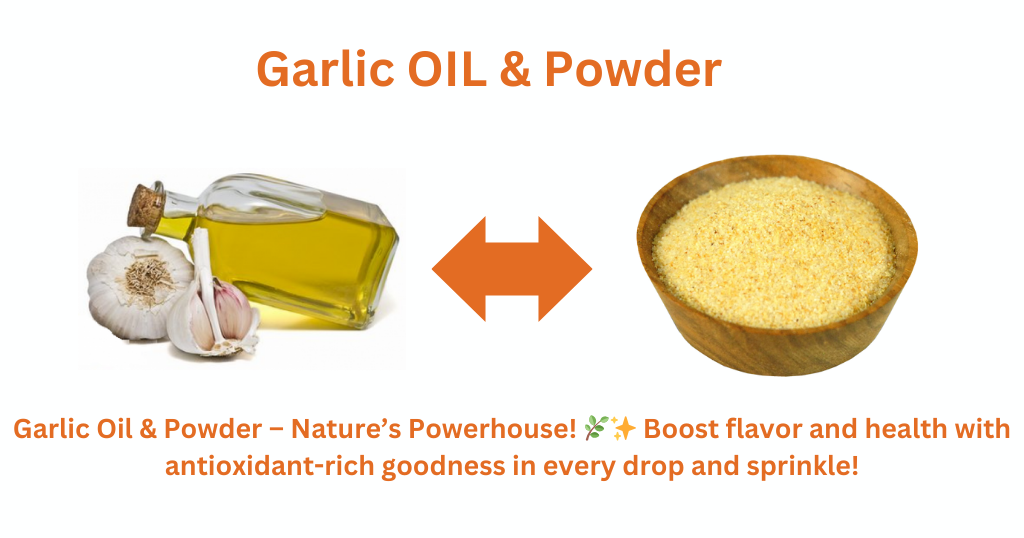
Garlic is concentrated in nature so its oil should be used in small amounts. It is considered to be a safe dose i.e., 0.12 ml per day. Garlic powder is used as a cooking and supplement. On the other hand, 600–900 mg daily is considered to be beneficial.
(Top 5 Uses of Garlic)
Improves Heart Health

Garlic is known for its powerful health benefits, including its ability to naturally lower blood pressure and reduce cholesterol levels, supporting overall heart health and improving circulation.
Boosts Immune System
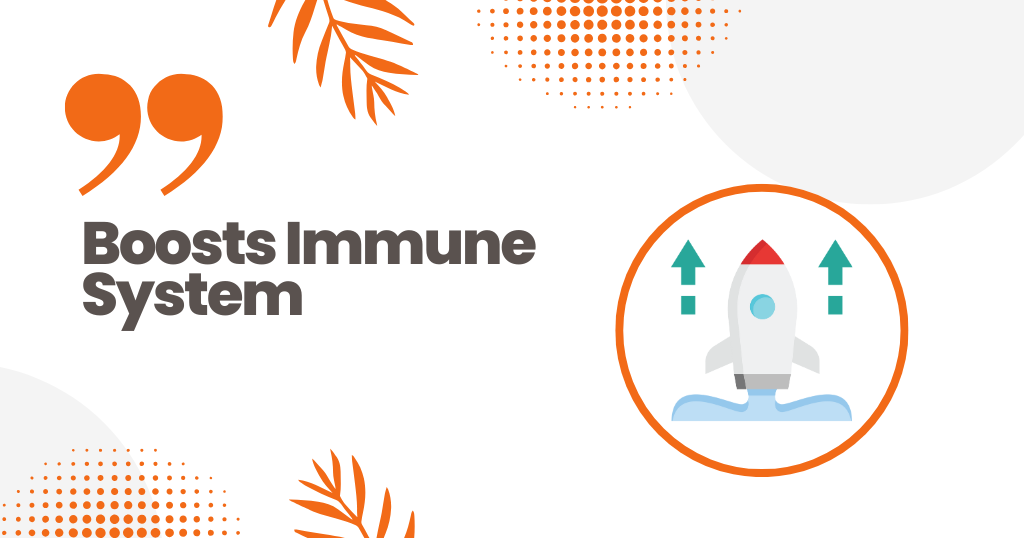
Garlic is a also good medicine, it helps in strengthening the immune system and fight infections. It has antibacterial, antiviral and antifungal properties that protect the body from sicknesses.
Controls Blood Sugar Levels
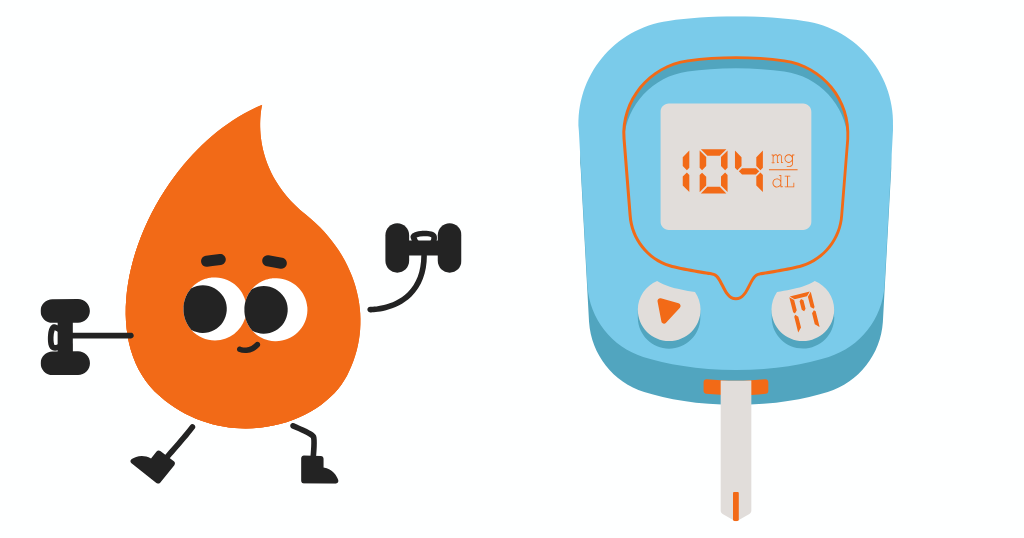
Garlic regulates the production of insulin and improves the metabolism of glucose. This helps diabetic patient’s successfully manage their blood sugar levels.
| Aids Digestion | Reduces Inflammation |
| Garlic stimulates the growth of healthy gut bacteria. It curbs bloating, indigestion and infections by harmful bacteria. | Garlic comes with sulphur compounds that lower the inflammation. |
(Risks of Consuming Excess Garlic)
Increases Bleeding Risk
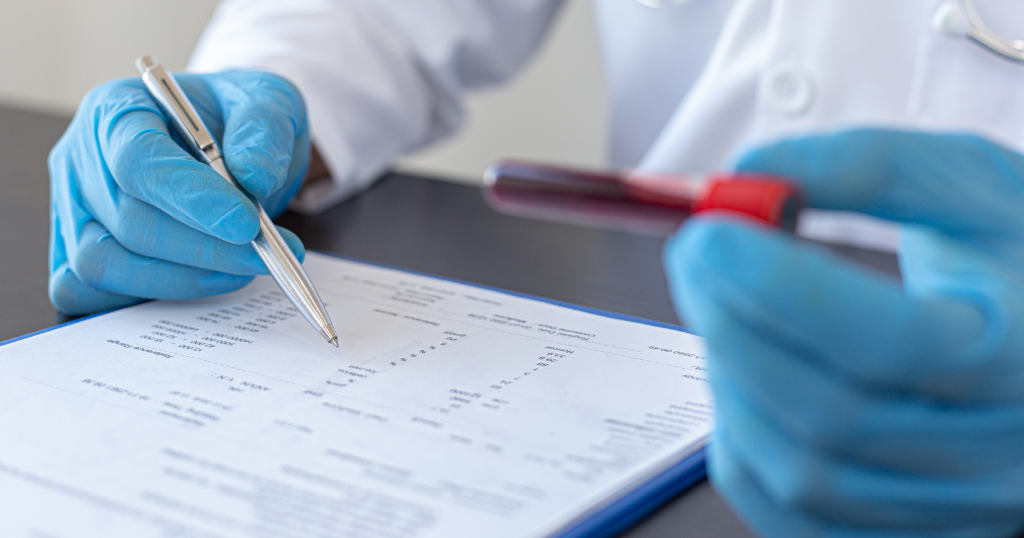
Garlic also acts as a natural blood thinner. People taking anticoagulants also have an increased risk of excessive bleeding. Garlic should be discontinued at least two weeks before surgery for those with surgery scheduled on them.
May Lower Blood Pressure Too Much

Excessive garlic consumption can cause dangerously low levels and garlic helps to reduce high blood pressure. If you have naturally low blood pressure then you should restrict the consumption of garlic.
| Can Interact with Medications |
|---|
| Blood thinners, medications that treat diabetes or some kinds of antibiotics may be affected by garlic. Garlic supplements can cause many side effects and danger to people on medication, so it is recommended that they must consult a doctor first. |
| Might Affect Liver Function in High Doses |
|---|
| However, people are advised not to take more than the recommended dosage of garlic as excess amounts may harm liver health. However, high doses can cause an increased liver enzyme level, indicating possible liver damage. |
| Could Cause Low Blood Sugar in Diabetics |
|---|
| Garlic will help control blood sugar, but too much can lower it too low. The diabetic patients should monitor the levels and take it according to what they require. |
| May Not Be Safe for Pregnant and Breastfeeding Women |
|---|
| Pregnant women can eat small amounts of garlic without causing digestive discomfort, but eating large amounts may cause unpleasant side effects. Garlic’s strong compounds can change the digestion of a nursing mother’s baby. |
(Side Effects of Garlic)
Causes Digestive Issues
Raw garlic can give rise to issues like heartburn, nausea, and bloating. It should be eaten by people who suffer from acid reflux.
Leads to Bad Breath and Body Odor
Garlic has a sulphur compound giving it a strong odor. After a few hours, the smell remains in the breath and sweat.
Can Trigger Allergic Reactions
Garlic has been known to cause allergic reactions in some people. Itching, rashes, swelling, difficulty breathing. In a severe case, you may need immediate medical attention.
May Cause Headaches or Dizziness
For some people, garlic may trigger headaches. It can also be dizziness if blood pressure has dipped too much.
Can Cause Skin Irritation
Raw garlic may cause skin burns or irritation via direct contact. In people with sensitive skin, it is more common.
Might Lead to Stomach Irritation When Eaten on an Empty Stomach
Garlic is a bit harsh if taken on an empty belly. In some people, it may cause discomfort, nausea or even vomiting.
Also Read
- Fighting Cancer Naturally
- Ayurvedic Diet for Cancer Patients
- Herbal Remedies for Cancer Care
- Neem Extract: Benefits, Uses, Risks, and Side Effects
